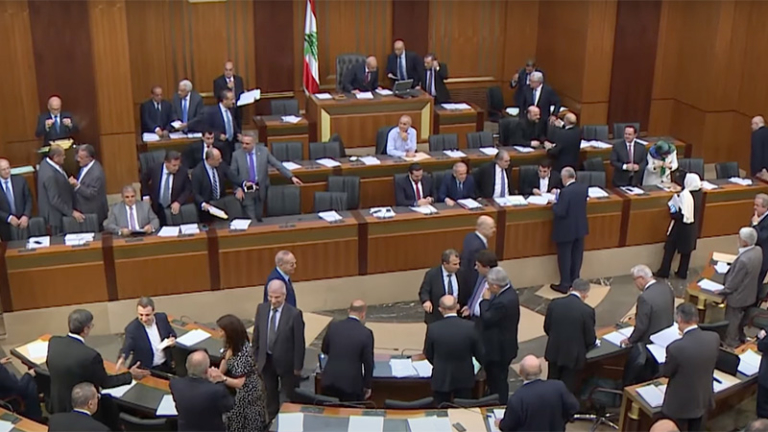
In March 2024, Lebanon’s “reform MPs,” a group of legislators who were elected in 2022 from outside the country’s traditional sectarian system, proposed a new law on violence against women (VAW). They drafted the bill in collaboration with local feminist NGOs and based it on international legal instruments and conventions. The bill aims to eliminate discrimination against women in Lebanon’s laws, which place severe constraints on those who are trying to escape abusive relationships. It also seeks to change the current legal framework that has no protections for Lebanese women who seek restraining orders against abusers. Unfortunately, it is highly unlikely that the law will pass in its current form due to a seemingly entrenched culture of violence against women in Lebanon and the sectarian leaders’ continuing control over the country’s political system.
A Novel Proposal
The proposed bill is grounded in current international conventions such as the United Nations’ Security Council Resolution 1325,which emphasizes the needs of women during armed conflict and during post-conflict resolution, and the Council of Europe’s Convention on Preventing and Combating Violence Against Women and Domestic Violence (known colloquially as the “Istanbul Convention”). The bill seeks to continue a fraught process of improving Lebanese women’s legal situation that has proceeded sporadically and incompletely over the past decade. The proposed legislation contains strong provisions to end exemptions for certain sectarian communities regarding crimes and offenses such as “honor crimes,” rape, and marital violence that limit women’s rights and safety.
The proposed legislation contains strong provisions to end exemptions for certain sectarian communities regarding crimes and offenses such as “honor crimes,” rape, and marital violence that limit women’s rights and safety.
Responding to local and international advocates, Lebanon first passed a law in 2014 to criminalize domestic violence against women. Law No. 293/2014) fell far short of expectations, however. It defined domestic violence quite narrowly and, due to pressure from religious authorities, maintained major loopholes around economic and psychological coercion, child custody, and spousal rape within marriages, among other problems. A 2017 analysis of the law’s impact conducted by scholars at the American University of Beirut found that it had little effect on the prevalence of VAW, and that few citizens even knew that the legislation existed. An amendment was passed in 2020 (Law No. 204/2020), which helped to impose penalties for particularly severe cases of economic and psychological abuse as well as for some forms of sexual harassment. But the law still did not criminalize marital rape and left many other loopholes in place, including those related to “honor”-based defenses for VAW.
In addition to their limited scope, these laws have suffered from extremely weak implementation and enforcement and have encountered significant resistance from religious leaders and sectarian politicians. Numerous high-profile cases of VAW in Lebanon have continued to raise the ire of women’s advocates by demonstrating how easily justice is delayed or evaded. For example, after thirty-three-year-old Rola Yacoub was killed in 2013 by her husband in front of her daughters, it took the justice system almost nine years to pronounce him guilty, and he was given only a five-year prison sentence and a minor fine. Another case that attracted much attention was that of Zeina Kanjo, a young model and beauty pageant queen who was strangled to death in 2021 by her husband. Kanjo had previously submitted multiple domestic violence complaints against him and was in the process of divorcing him. But the authorities failed to take any action to protect her. More recently, in July 2023, a young Lebanese woman was gunned down in broad daylight by her former boyfriend. She had ended their relationship after discovering that he was already married to another woman and had a child, after which he threatened and stalked her for ten days before killing her.
It is common in such cases for the perpetrators of violence against women to excuse and justify their actions as the result of a woman’s perceived insult or breach of religion.
It is common in such cases for the perpetrators of violence against women to excuse and justify their actions as the result of a woman’s perceived insult or breach of religion. The label “honor killings” is sometimes used for such cases, especially when the woman is accused of adultery. In April 2023 Zeinab Zeaiter was shot and killed by her husband, allegedly for cheating on him. Astonishingly, Zeaiter’s own brother took the side of her killer, stating that he was proud of the murder and that it was necessary to remove the “shame” that Zeaiter had brought onto her family’s reputation. In 2014, when Manal Assi’s husband beat her for more than six hours before killing her by bashing her head with a pressure cooker, all in front of her young daughters, a local TV station gave the killer nearly an hour of airtime during which he attacked her character and accused her of infidelity. Assi’s murder initially resulted in a light sentence of five years’ imprisonment, with the Beirut Criminal Court accepting the excuse that it was a crime of passion incited by her defiant behavior. Only after an extensive uproar from advocates did a higher court accept to review the case and ultimately extended the sentence to 18 years.
Based on these stories and related statistics, it is not surprising that Human Rights Watch declared in November 2020 that Lebanon was continuing to fail in its obligations to protect women and girls. The recently proposed bill seeks to address this situation, especially by tackling the legal loopholes to ensure that crimes against women are taken seriously. If enacted, the new law would make it easier and faster for women to obtain restraining orders by creating specialized courts headed by dedicated judges to streamline and expedite this process. One of the new bill’s notable features is the establishment of specialized courts to manage cases of domestic violence more effectively and sensitively. Additionally, it mandates comprehensive training for law enforcement and judicial personnel to ensure they are equipped to handle these cases appropriately. The bill also proposes increasing funding for shelters and support services, ensuring that women and children have safe havens and access to necessary resources. Another crucial aspect of the bill is its focus on preventive measures. It includes provisions for public awareness campaigns to educate the population about how to recognize the signs of domestic violence and how to seek help. Furthermore, it aims to provide mandatory counselling and rehabilitation programs for offenders to reduce recidivism.
Outstanding Challenges and the Work of Local NGOs
Even the proposal of such a robust bill is a valuable step forward and a testament to the painstaking work of women’s advocates. But the likelihood of it passing without major modifications is slim. As a lawyer from the Kafa advocacy group bravely went on record to note, the Lebanese parliament is “patriarchal, conservative, primitive, and backward.” It is possible that some of the proposed law’s provisions, such as expedited restraining orders or specialized judges, would be implemented, but it is unlikely that the country’s current leadership will countenance meaningful changes to the sectarian personal status codes. Funding for shelters, personnel training, and other infrastructure to protect women is also unlikely to be forthcoming, in part due to the severe financial problems of the Lebanese state.
The influence of religious leaders on the state and the religious nature of the personal status laws create a system in which women’s advocates have very limited leverage to pursue change.
The unequal status of women in Lebanon is a structural problem linked to the country’s sectarian political system and its socioeconomic crises. The influence of religious leaders on the state and the religious nature of the personal status laws create a system in which women’s advocates have very limited leverage to pursue change. Maya Mikdashi has described this state of affairs as “sextarianism” (a portmanteau of “sex” and “sectarian”), and analyzed how religious and patriarchal authority work together to consolidate their power, manage the everyday lives of the Lebanese people, and consequently protect the perpetrators of violence. As a result, the extent of VAW in Lebanon is extremely high and has continued to rise in recent years.
The reservoir of this violence in the sectarian and domestic spheres was highlighted during the COVID-19 pandemic, which severely curtailed the scope of activity outside of the home. The pandemic was associated with an uptick in VAW throughout the world, and Arab countries were no exception. In Lebanon, the isolating effects of the pandemic were heightened by the country’s economic crisis and the social strain of living in cramped and confined conditions. During this time, the Lebanese Internal Security Forces saw a 241 percent increase in the number of reported cases of domestic violence. Other reports found that 85 percent of the VAW during the pandemic occurred in the home, and that a significant number of Lebanese women felt unsafe in their homes.
The primary challenge to these bleak conditions has been from local Lebanese NGOs, who have sought tirelessly to bring light to Lebanese women’s experiences and to transform VAW into an issue of public concern. Two of the most important such NGOs are ABAAD and Kafa, whose members have conducted much of the legwork that went into formulating new legal frameworks, publicizing women’s issues, and supporting the families of victims during legal proceedings. They also work with regional and international organizations in collecting data and issuing reports and studies about the lives of Lebanese women. Both NGOs are secular and support non-sectarian solutions to reform the political system and advance gender equality. ABAAD provides social support services to both women and men and has recently started to focus on challenging toxic understandings of masculine “honor.” Kafa is known especially for its campaign to abolish child marriage, as well as for its support for migrant women, prostitutes, and others who have little recourse under the current legal paradigm.
The newly proposed law is strongly grounded in Kafa and ABAAD’s advocacy. The NGOs worked closely with the reform MPs to expose aspects of the Lebanese legal system that are particularly detrimental to women in practice, and to identify targeted legislative changes that could have a real impact. If the new law passes in some form, the gains will result in large part from the work of these NGOs.
Persistence Is Key
In recent decades, violence against women has become a plague in Lebanon. Anxieties about shifting concepts of gender have combined with the travails of the COVID-19 pandemic and the collapse of the Lebanese financial system to unleash frustrations of murderous proportions. Old laws, often dating to the French mandate, have not been changed to meet the demands of the age. While advocates have succeeded in drawing attention to these issues and have scored some legislative wins, an entrenched sectarian and patriarchal political nexus continues to dilute protections for women. The continuing salience of “honor”-based defenses to justify VAW, and the religious-based conviction that a wife cannot decline sex to her husband, are just two of the entrenched beliefs that have constrained Lebanon’s ability to pass robust laws protecting women’s rights. The bill introduced in March, while noble in intent and painstaking in its details, will also most likely fail to accomplish the drastic changes it seeks in the Lebanese legal system. Observers should pay careful attention to the elements of the proposed bill that are singled out for criticism and removal, for that will indicate the components that are most genuinely threatening to Lebanon’s “sextarian” consensus.
The views expressed in this publication are the author’s own and do not necessarily reflect the position of Arab Center Washington DC, its staff, or its Board of Directors.

